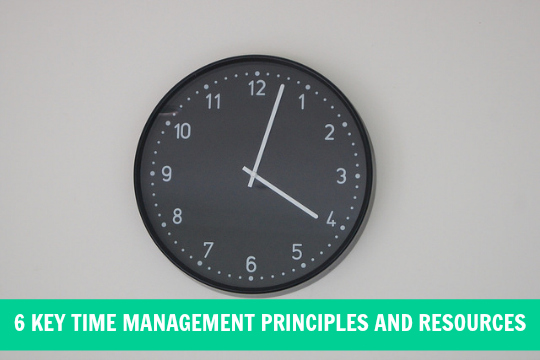This month on the blog I am focusing on the basics of organisation and planning for family life.
For me both organisation and planning is evolutionary. I become better at things, I work out short cuts and tricks and I learn from those around me and from you on the blog!
Systems I create for making our family life easier are not set in stone, they need to be fluid and fit with what stage we are at and what is happening in our life. Today’s focus is on managing time effectively.
***********
1. Know where you want to spend your time
One of the most common issues that comes up when I chat to other mums about time management is that they often feel pulled in so many directions and don’t know where they should be spending their time.
And I can understand why as I often feel it too! There are so many incoming requests for your time, so many fires to put out, so many personalities to cater for and give attention to, it can be overwhelming.
To help cut through some of this bombardment it is incredibly useful to take the time to think really hard about what is it you want to do with your time.
What goals do you want to achieve? Well set goals provide an excellent decision making framework – which can guide you in how to use your time.
If you are after a framework for setting goals you can read these resources on the blog:
- Setting smart goals – how to use SMART goal setting techniques for personal goals
- Goal setting for 2012 – inspirational quotes
- Goal setting for 2013 – breaking goals into categories for key areas of life
- Goals Setting for 2014 – creating a decision making framework
2. Plan what you can
Family life is full of repetitive tasks – washing, cleaning, cooking, shopping, making lunches and the like. My approach is to put into place processes and plans in place for those known tasks so as to simplify them and make them easier.
With a solid base, I am then in a much better place to cope with all the unpredictable moments that happen in family life – sick kids, sibling fighting and the other mini crises that come along.
There are two key plans which help me create an organised base to work from:
- Menu planning – you can read more about how I approach menu planning here. Menu planning helps in a number of ways as not only does it take care of meals, but it also make fitting shopping into a regular routine easier as well.
- Weekly plan – this helps me allocate cleaning tasks, my exercise schedule, preparation times and other key activities. You can see how I approach it this in this post – Writing down your week.
3. Prioritise
I love a to do list! However sometimes the to do list can get ridiculously long and overwhelming as to where you start tackling it. This is where prioritisation is the key.
I try to apply the basic Stephen Covey principles of “urgent vs important”. This means when it comes to my to do list I need to give higher priority to those tasks that will help me achieve my goals as opposed to those that seem urgent, but in reality are much less important tasks.
I created a important vs urgent matrix for myself and it was an interesting exercise to undertake. Creating the matrix to refer to also can assist in what you should tackle on your to do list first.
I have included my matrix below for reference only. These are what are urgent or important etc for me. It is unlikely that this would be the same for everyone. If you would include an item in a different quadrant to what I do, it does not mean it is wrong, it will always be subjective and only you will know of what value the activity is to you and your family.
4.Single task
The lure of doing a couple of things at once to save time for me is strong. There are certain things that work well with multitasking, like folding the washing and talking on the phone, or listening to a podcast as I cook dinner. But there are lots of time when multitasking really just wastes my time as I don’t do either task well.
For example, checking emails frequently on my smart phone, while I am hanging out with the kids. Generally if it is important and requires a considered response I can’t respond right there and then on the phone. So I will go back to it later, have to reread the email all over again, to make sure I read it correctly in the first place. It is also too easy to click on links in incoming messages and spend time surfing the net when I didn’t plan to.
I now aim to focus on one task at a time, to be fully present while doing it and complete it before moving on to the next thing.
And if like me you want to see some stats on whether or not multitasking actually works, read this post on the Harvard Business Review – How (and Why) to Stop Multitasking:
Doing several things at once is a trick we play on ourselves, thinking we’re getting more done. In reality, our productivity goes down by as much as 40%. We don’t actually multitask. We switch-task, rapidly shifting from one thing to another, interrupting ourselves unproductively, and losing time in the process.
You might think you’re different, that you’ve done it so much you’ve become good at it. Practice makes perfect and all that.
But you’d be wrong. Research shows that heavy multitaskers are less competent at doing several things at once than light multitaskers. In other words, in contrast to almost everything else in your life, the more you multitask, the worse you are at it. Practice, in this case, works against you.
5.Place boundaries on your time wasters

To effectively use your time, you need to be aware of where your weaknesses are. What are your time wasters? Do you like me love Pinterest and can spend way more time on there than you intended? Is it reality TV you have a penchant for and find yourself flicking from one channel to the next?
Identifying activities where you can lose significant time doesn’t mean you have to stop using or enjoying them, but I can highly recommend setting some boundaries for yourself.
For my work I spend significant time online. I spend significant time on social media. But I also use social media for personal use as well. I have mentioned before how I will regularly have 15 minutes on Pinterest after lunch just for enjoyment. I set my iPhone alarm, so it will interrupt my pinning session and that is enough to make me get off.
If I am working on a project though, it is easy to use my Planning With Kids social media networks as an excuse and “just take a quick look” at what is happening. I don’t really need to check at all, I am just losing focus and looking for a distraction.
I have set up SelfControl on both my MacBook Air and iMac. SelfControl is a free application that lets you list the sites you want to block and then set a timer for how long you are not allowed access to this site. You can even add mail servers as well.
Even if you restart your computer or delete the application you still will not be able to access these sites until the time is up.
I have read Cold Turkey is a good PC equivalent.
6.Have unallocated time
If you are a planner by nature like me, it is easy to fall into to the habit of planning out all of your time. But I find I need time where I don’t have to do anything specifically. Even if it often it is only my expectations that I have to do particularly things, I see them as commitments and keep working. I need to make sure I don’t over commit myself by blocking out all of my available time.
Having time where I truly relax and switch off from work and other commitments, allows me to come back to it refreshed and in a better frame of mind to tackle the next tasks.
What are your favourite time management tips and resources?


